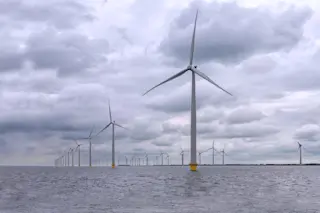Efforts to grow our own fuels by adding ethanol to the tank are already putting pressure on corn crops. Now some researchers say they have a way to reduce our dependence on foreign oil—and on foreign wood and paper products.
With cheaper sources of wood and paper products flooding in from countries like Brazil, China and New Zealand, the American timber industry has been cutting jobs.
Yet, Hemant Pendse, chair of the University of Maine's Department of Chemical and Biological Engineering, says, half of the wood that's cut in the United States goes to waste. "Only half of it is actually coming out as pulp. Half of it is either burned or sent to the landfill. And that's not the way things should be done," he explains.
He says instead, unused wood should be money in the tank. The solution, says Pendse – turn existing pulp and paper mills into complete "forest biorefineries" that convert current waste products into valuable ethanol. This would kill several birds with one stone: increase profits, provide a desperately needed source of fuel, and be better for the environment.
With funding from the National Science Foundation, the University of Maine is creating a way to refine forest biomass into ethanol fuel. Their new technology extracts a compound from wood biomass, called hemicellulose, that can be converted into ethanol.
Pendse, who heads up the project, says another bonus is that removing the hemicellulose doesn't affect the quality of wood fiber. That means wood and paper companies could add profits by extracting it from wood before making their usual products.
"While preserving existing operations we can add on additional product lines which will be the fuel ethanol and that help us not only get fuel ethanol but save the jobs that are already there in this industry," says Pendse.
In fact, Pendse argues that fuel ethanol, currently produced from food crops, can never be an economically viable alternative fuel for America unless wood is added to the equation. Besides the obvious problem that we need corn as food, you barely get any more energy out as ethanol than you put in as fertilizer, farm work, and the actual conversion process.
Pendse, says it takes much less energy to grow trees than corn. "We're talking about it being 500 times or 700 times more energy that you can get as a renewable transportation fuel," says Pendse. Wood also has basic advantages as a crop. Trees are abundant and available year-round, and they don't require fertilizer.
In the near future, Pendse says they can also use wood to make the chemicals that go into production of plastics instead of relying on foreign petroleum for those as well.














